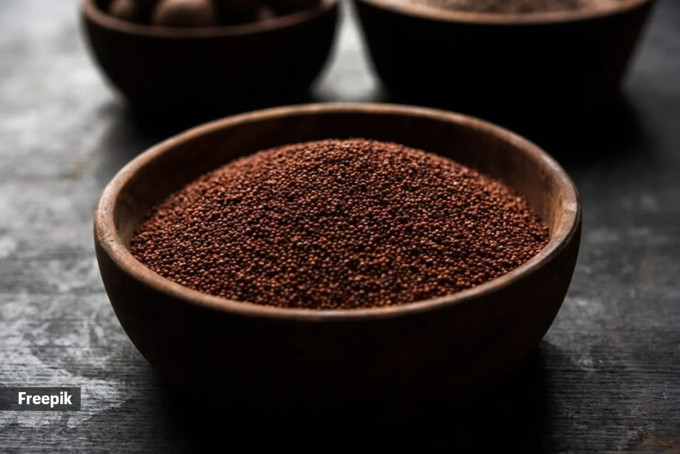Could consumption of ragi be the reason behind your thyroid problems?
In the pursuit of maintaining good health by controlling your diet, should you avoid consuming ragi or finger millets — which has gained immense popularity in recent times — if you have thyroid issues?
Dietitian and content creator Shweta J Panchal explains in her reel that thyroid can stem from various causes, which include autoimmune diseases, lifestyle factors, and iodine deficiency. She also suggested that ragi consumption might impact thyroid function by reducing the body’s ability to absorb iodine, a crucial element for thyroid health.

View this post on Instagram
A post shared by Dietitian Shweta J Panchal | The Diet Therapy (@dt.shwetashahpanchal)
This has raised concerns about whether ragi should be excluded from the diets of those dealing with thyroid problems. To delve deeper into this topic, we turn to the insights of Shubha Ramesh L, chief dietician at DHEE Hospital, Bengaluru.
Impact of phenolic compounds and goitrogens in ragi on thyroid function
“Ragi (finger millet) contains phenolic compounds, which are known for their antioxidant properties. However, these compounds can also interact with thyroid function by inhibiting the enzyme system that regulates thyroid hormones,” Shubha agrees.
Additionally, ragi contains goitrogenic compounds, she explains, substances that can interfere with iodine uptake by the thyroid gland, potentially leading to goiter and other thyroid-related issues. This interference is crucial because iodine is essential for the synthesis of thyroid hormones.
Advice for individuals with hypothyroidism regarding ragi consumption
For people with hypothyroidism, Shubha recommends that being mindful of consuming foods high in goitrogens, such as ragi, is of utmost importance.
“Goitrogens can exacerbate issues with iodine absorption, further complicating thyroid hormone production,” she says.
Individuals with hypothyroidism should monitor their intake of goitrogenic foods to avoid potential negative impacts on their thyroid health and consult healthcare providers for personalised dietary advice.
 Specifically for people with hypothyroidism, Shubha Ramesh L recommends that consuming foods high in goitrogens, such as ragi, may not be advisable. (Source: Freepik)
Specifically for people with hypothyroidism, Shubha Ramesh L recommends that consuming foods high in goitrogens, such as ragi, may not be advisable. (Source: Freepik)
Consumption guidelines for ragi and other millets
Incorporating ragi into the diet can be beneficial due to its nutritional profile, but moderation is key, especially for individuals with thyroid concerns. “Consuming ragi twice weekly, in limited quantities, and ensuring it is properly soaked, sprouted, or roasted can mitigate some concerns related to goitrogens and phytic acid. Other millets should also be prepared by soaking for at least two hours, then rubbing and washing before use, to enhance their nutritional value and reduce potential antinutritional factors,” Shubha advises.
In crafting a diet, she adds, especially for those with specific health conditions like hypothyroidism, it’s essential to consider the broader nutritional context. The balance of nutrients, the method of food preparation, and individual health needs all play critical roles in optimising well-being. Consulting with a dietitian or healthcare provider can provide tailored advice that considers both nutritional benefits and potential risks associated with certain foods.
Dietary recommendations for thyroid health other than the consumption of ragi
To support thyroid health, the dietician suggests limiting foods that could inhibit thyroid function. This includes:
*Soy and soy products: These can inhibit the enzyme necessary for producing thyroid hormones.
*Cruciferous vegetables: Vegetables like cabbage, broccoli, and spinach might affect the absorption of thyroid medication if consumed in large quantities.
“Moderation and preparation methods can mitigate some risks, but individual dietary adjustments should be based on medical advice and personal health status,” Shubha asserts.
Disclaimer: The copyright of this article belongs to the original author. Reposting this article is solely for the purpose of information dissemination and does not constitute any investment advice. If there is any infringement, please contact us immediately. We will make corrections or deletions as necessary. Thank you.





